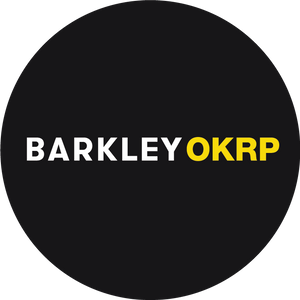
Politics and the Super Bowl: The Myth of Playing It Safe

Super Bowl advertisers played it safe in the Big Game for the second year in a row, say many ad ‘experts’. They avoided politics. And the NFL gave us Maroon 5 at halftime to assure us that yes, there could be something more boring than the lowest scoring game in Super Bowl history.
But did brands play it safe, or did they just want us to think that?
Let’s be clear about something: politics is not absent from the Super Bowl. It’s everywhere, you just don’t see it.
True, we got a few innocuous glimpses of politics. Serena reminded us that power is something you have, not something you are given. Google wanted us to know that they do great things for veterans, and that’s laudable, but being for the veterans is like supporting motherhood. And we don’t take very good care of our veterans as it is.
We’re living through the most politically charged times since the ‘60s, but our greatest brands are supposedly backpedalling from getting too involved. They quietly endorse the sentiment of many people who say they hate politics and don’t get involved with it. Don’t buy it.
Brands aren’t avoiding politics. They’re immersed in it. They would just prefer you not notice. If they convince people that politics is dirty, unseemly, and not worth your time, they have eliminated potential opponents. That’s bare-knuckle Chicago politics.
Follow the money
I looked at the spending on lobbying over the last five years by six of the more notable advertisers in this year’s game: Anheuser-Busch InBev, Amazon, Google (Alphabet), Microsoft, the National Football League, and T-Mobile.
In 2018, these six brands spent a combined $63 million on lobbying activities, according to the website Open Secrets, who compiles data from public filings required of registered lobbyists. That’s just money on lobbying - it doesn’t include contributions to political action committees and candidates.
Five years ago these same brands spent $39 million on lobbying. That’s a 61% increase - so never think they are not interested in politics.
I’m not suggesting that these brands are doing nefarious things with their lobbying money, but I’m also not naive. The NFL nefarious? Never. Oh wait...concussions.
More than half of the $63 million spent last year came from Amazon ($14 million) and Google ($21 million), who spent more than any other company, including defense and energy firms, the traditional big influence peddlers.
Five years ago, Amazon and Google spent only $5 million combined. What you’re seeing here is rapid change underway in the world of political influence. Amazon and Google are now the Exxon and Lockheed Martin of our modern era - and expect them (along with Microsoft, who regularly spends about $9 million annually) to hang around for a long time.
‘Playing it safe’ isn’t what you think it is. It’s a power strategy, nothing more and nothing less.
It’s a strategy that companies use to drive an agenda without drawing attention to it, while making people like you and me think that they are just minding their own business.
Any good strategist knows that stealth in what you do is far more effective than flamboyance.
This is especially true in the political world, where it’s a fundamental rule that those who carry the most influence do so quietly. You only make noise when it serves your business goals - such as Nike did with Colin Kaepernick. Super Bowl advertisers understand this better than you know.
Two straight years of low-profile, play-it-safe behaviours in Super Bowl advertising is anything but what it seems. Ask yourself this question: Wouldn’t you just love to know how much Anheuser-Busch InBev is spending to get the FDA to require brewers to add corn syrup to their labels? They put $8 million into lobbying last year.
David Gutting is SVP / director of intelligence at Barkley













